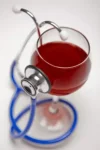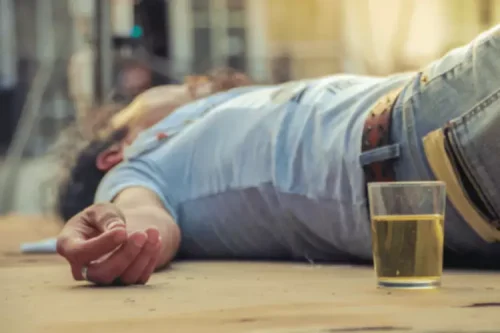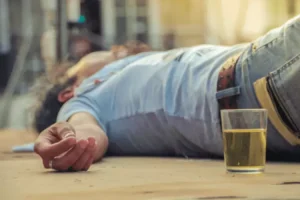Alcohol Withdrawal: Definition, Causes, Signs and Symptoms, Stages, Risk Factors, Diagnosis, Treatment

Once you stop drinking and all the alcohol is out of your system, your diarrhea should start to get better. For now, it may be easier to skip meeting your “drinking buddies” and avoid gatherings that have a focus on drinking. Symptoms are often at their worst between 24 and 72 hours after you stop drinking. Hypertension is common, and some doctors also prescribe beta blockers during withdrawal.

Related MedlinePlus Health Topics
- Carbamazepine was also reported to be an effective alternative to benzodiazepines in the treatment of alcohol withdrawal syndrome in patients with mild to moderate symptoms 58.
- Once a tolerance is developed, the body does not respond the same way unless the amount consumed increases.
- Detailed neurological and medical examination, blood investigations and brain imaging are required and should be done, especially to rule out alternative causes.
Alcohol withdrawal is a natural physical response your body goes through when trying to break an alcohol dependence. An Indian study comparing the STR and FTDR of lorazepam for alcohol detoxification in 63 indoor patients found that STR resulted in shorter duration of treatment and lower total doses of medication. This double blind randomized controlled trial alcoholism found STR to be as safe as the fixed tapering dose 56. Long-term alcohol consumption affects brain receptors, which undergo adaptive change in an attempt to maintain normal function. Alcohol potentiates GABA’s inhibitory effects on efferent neurons, thereby suppressing neuronal activity.
Assessing Severity

Vitamin B1 (Thiamine) supplementation helps to prevent Wernicke’s alcohol withdrawal syndrome symptoms encephalopathy (WE) and should be given orally or intramuscularly to all the patients. Over the years, the treatment for alcohol detoxification has evolved from the use of gradual weaning schedule of alcohol itself to the use of benzodiazepines and the newer miscellaneous drugs. Prompt pharmacological treatment is indicated in all cases of AWS, as non-treatment or under treatment can be fatal 25,26.

Can You Prevent It?
- The review suggests that benzodiazepines are the preferred drugs for alcohol detoxification and all the benzodiazepines have proved similar efficacy for detoxification.
- Those with severe AWS experience severe anxiety and moderate to severe tremor, but they do not have confusion, hallucinations, or seizures.
- AUD is very common, affecting an estimated 76.3 million people worldwide.
- Heavy drinkers suddenly decreasing their alcohol consumption or abstaining completely may experience alcohol withdrawal (AW).
The best-studied benzodiazepines for AW treatment are diazepam, chlordiazepoxide, and lorazepam 24,27. Those with severe symptoms need to remain in the hospital for part or all of the detox process. This is so a doctor can closely monitor their blood pressure, breathing, and heart rate and provide medications to ease the process. A hangover occurs when a person drinks too much alcohol at one time.
Prevention
Many involve a combination of group psychotherapy (talk therapy) and medications. It’s important to be honest about your alcohol use — and any other substance use — so your provider can give you the best care. Alcohol (ethanol) depresses (slows down) your central nervous system (CNS). If you consistently consume significant amounts of alcohol, your CNS gets used to this effect. Your CNS must work harder to overcome the depressant effects of alcohol to keep your body functioning.
- Approximately 50% of people with alcohol use disorder experience alcohol withdrawal syndrome (AWS) after abruptly decreasing or abstaining from alcohol consumption.
- Intravenous or intramuscular lorazepam should be preferred and administered at frequent intervals with close monitoring.
- While some of the symptoms of alcohol withdrawal syndrome are similar to a hangover, they are not the same condition.
- Medications such as haloperidol, beta blockers, clonidine, and phenytoin may be used as adjuncts to a benzodiazepine in the treatment of complications of withdrawal.
The main ways to prevent alcohol withdrawal are to avoid alcohol altogether or to get professional help as soon as possible if you think you’re developing alcohol use disorder. Symptoms of alcohol withdrawal tend to peak 24 to 72 hours after your last drink. Alcohol withdrawal can range from very mild symptoms to a severe form, known as delirium tremens. Although ecstasy is often seen as a party drug, its long-term effects can be harmful and, in some cases, life-threatening. Repeated use of MDMA doesn’t just affect the brain temporarily—it can lead to lasting changes in physical and mental health.

MILD SYMPTOMS (CIWA-AR SCORE LESS THAN 10 OR SAWS SCORE LESS THAN
You’ve taken an important first step toward recovery by deciding to stop drinking. Now, try to keep in mind that even though withdrawal symptoms may be unpleasant, they’re temporary, and treatment is available during this time. This may include medications, therapy, or both and can be offered in a variety of settings, both inpatient, outpatient, or a hybrid model.
